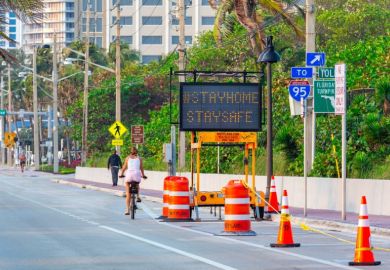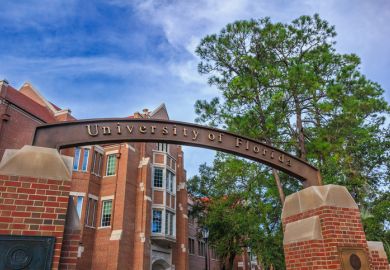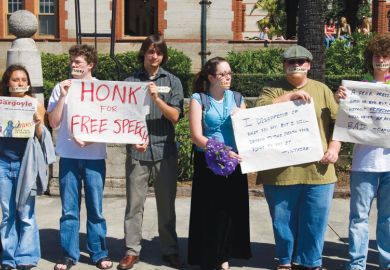A US federal judge has sided with University of Florida professors who were blocked from testifying against their state in a high-profile voting rights case, agreeing that the matter deserves a full hearing.
The university tried to block the legal proceedings in federal court on grounds including the fact that the institution had already relented on its position under heavy public criticism of it.
But the Florida-based federal judge, Mark Walker, declined to dismiss the case, agreeing with the professors that there was a substantial chance that the university would revive its policy once the attention subsided.
“This case is not about what has happened,” the judge wrote in his decision. “This is a case about what will happen.”
The showdown has attracted widespread attention in the US as an especially flagrant attempt by conservative political leaders to interfere in academic freedom, amid the nationwide range of attempts to limit US voting rights after President Trump angrily disputed his 2020 election loss.
The Florida case involves three political science professors – Sharon Austin, Michael McDonald and Daniel Smith – who planned to serve as expert witnesses opposed to a new state law imposing new hurdles on people trying to vote by mail.
They were initially blocked by their university, who told them that opposing Florida’s fiercely partisan Republican governor, Ron DeSantis, was harmful to the institution’s interests.
Mr DeSantis is viewed as a leading US presidential candidate for the 2024 election, and his administration has been accused of taking a series of other steps to interfere with academic freedom at Florida’s universities in areas that include limiting Covid research and the teaching of racial equity.
After the university’s rejection of courtroom testimony in the voting rights case became publicly known, the institution promised a reversal. But the institution also created a new policy containing other elements the professors see as problematic, including the lack of any time limit for the university to answer future faculty requests about offering legal testimony.
Judge Walker’s ruling sets up another court hearing later this week to formally consider a request by the professors to block the implementation of any such restrictions.
The judge made it clear he understood the bottom-line concern. “Plaintiffs contend that the university reversed course on its earlier denials to try to ride out the firestorm of criticism those denials triggered,” he wrote. “Once that storm is over, plaintiffs say, the university will pick up right where it left off.”
The judge also rejected the university’s plea to dismiss the case on the grounds that the professors did not first pursue their complaint through their union’s collective bargaining processes.
Register to continue
Why register?
- Registration is free and only takes a moment
- Once registered, you can read 3 articles a month
- Sign up for our newsletter
Subscribe
Or subscribe for unlimited access to:
- Unlimited access to news, views, insights & reviews
- Digital editions
- Digital access to THE’s university and college rankings analysis
Already registered or a current subscriber?




